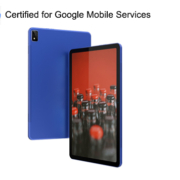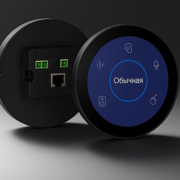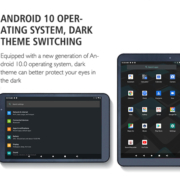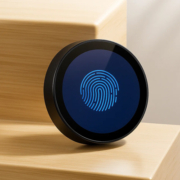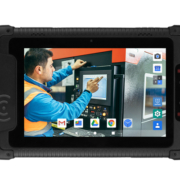What is an OEM Tablet PC?
In today’s fast-paced technological world, businesses and consumers alike have increasingly come to rely on tablet PCs for a variety of applications. From entertainment to productivity and beyond, tablets have become an integral part of daily life. However, not all tablets are created equal, and many companies require devices that cater specifically to their needs, whether it’s a customized design, specific hardware requirements, or branded devices. This is where OEM (Original Equipment Manufacturer) tablet PCs come into play.
An OEM tablet PC is a device that is manufactured by one company (the OEM) but branded and sold by another company. Essentially, the OEM builds the tablet according to the specifications provided by the client, who then sells it under their brand name. OEM tablets are widely used in industries ranging from retail and healthcare to education and logistics, as they offer businesses the ability to integrate specialized features and customization without having to design and manufacture the device themselves.
This article will dive deep into what an OEM tablet PC is, the benefits it offers, and how businesses can leverage these devices to their advantage.
1. What Does OEM Mean in the Context of Tablet PCs?
The term OEM refers to a company that designs and manufactures products that are used as components in another company’s products. In the case of tablet PCs, the OEM is the company that handles the production of the tablet, including the hardware and basic software integration. However, the company that buys the OEM product typically brands it with their logo, customizes the hardware or software to their needs, and resells it to their customers.
OEM tablet PCs are often manufactured in bulk, and the devices are produced to meet the client’s exact specifications. These specifications may include custom operating systems, specialized hardware like barcode scanners, GPS, additional ports, or rugged features to make the device suitable for certain industrial environments.
2. How OEM Tablets Differ from Other Tablets
There are several key differences between OEM tablet PCs and the tablets you typically find on store shelves:
- Branding and Customization: Unlike standard retail tablets that are sold under well-known brands (such as Apple, Samsung, or Microsoft), OEM tablets are often branded by the company purchasing them. For example, a company might want to offer tablets for use in a retail POS system but doesn’t want to use the standard consumer models. Instead, they opt for an OEM tablet that can be customized to suit the retail environment, including pre-installed software, special functionality, and company branding.
- Tailored Features: OEM tablets often come with specialized features that are designed to meet the specific needs of businesses. This could include features like rugged construction for industrial environments, biometric security features (e.g., fingerprint or face recognition), or compatibility with enterprise software solutions. For instance, an OEM tablet might include support for POS (Point of Sale) systems or barcode scanning, features not typically found on consumer-grade tablets.
- Enterprise Integration: OEM tablets are designed with enterprise integration in mind. Unlike consumer models, these devices can be customized to support company-specific apps, software solutions, and tools, which makes them ideal for businesses. They can also be integrated with cloud systems, enterprise resource planning (ERP) systems, or customer relationship management (CRM) platforms.
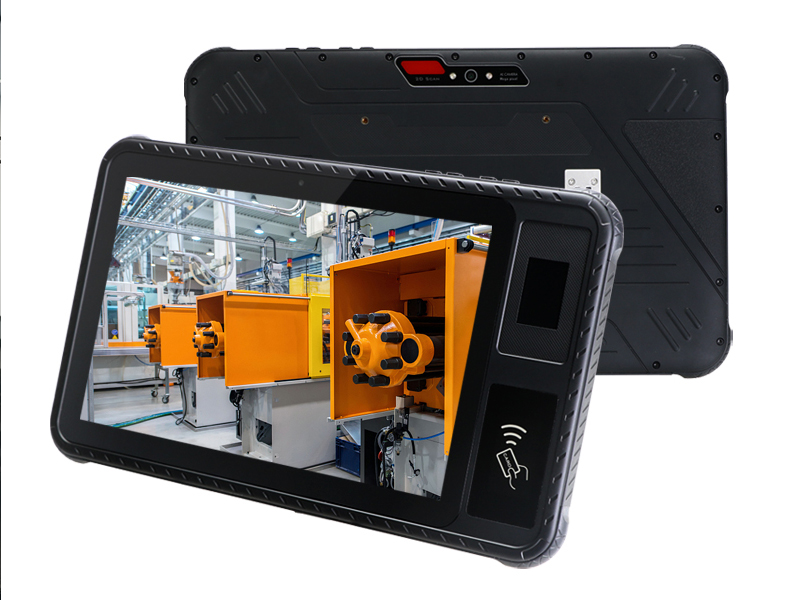
android tablets
3. Benefits of OEM Tablet PCs
a. Cost Efficiency
One of the primary reasons businesses opt for OEM tablets is cost savings. Manufacturing tablets in bulk allows companies to benefit from economies of scale, reducing the overall cost of production. Instead of designing and manufacturing a tablet from scratch, companies can purchase OEM tablets and then customize them with their branding and unique features, which can be much more affordable than building an entirely new device.
Additionally, OEM tablet manufacturers often offer competitive pricing, which makes these devices a viable option for companies looking to deploy tablets on a large scale, such as in a fleet of POS terminals, fieldwork devices, or customer service kiosks.
b. Customization and Flexibility
OEM tablets offer high levels of customization and flexibility. Companies can modify the hardware, such as screen size, processor speed, and memory, to suit their needs. For example, an OEM tablet might be customized with a larger battery for extended use in field operations or made waterproof and shock-resistant for use in harsh environments, like construction sites.
Moreover, Portworld, a company specializing in OEM tablet solutions, offers a range of customizable options, including the ability to adjust the operating system, add specialized apps, and even design the tablet casing and packaging to match a business’s branding. This ensures that businesses get exactly what they need from their devices.
c. Faster Time to Market
For businesses looking to deploy tablets quickly, choosing an OEM solution can drastically reduce the time to market. Since the device is already designed and manufactured by the OEM, businesses can focus on customizing the software, branding, and integration. This streamlined approach allows companies to get the tablets into the hands of their customers or employees much faster than if they were designing a device from the ground up.
d. Brand Recognition
Customizing the branding of an OEM tablet allows businesses to maintain a consistent brand image. For instance, a company that provides smart home solutions can have tablets branded with their logo, colors, and design, reinforcing their brand in the minds of customers. This branding also extends to the customized packaging, providing a unique and professional look to the product.
e. Support and Reliability
OEM tablet manufacturers usually provide comprehensive support services, including warranty coverage and software updates. This means businesses don’t have to worry about managing device maintenance, as the OEM will typically offer ongoing support for the tablets, ensuring they remain functional and secure throughout their lifecycle.
4. Applications of OEM Tablet PCs
OEM tablet PCs are used in a wide range of industries and applications. Some common uses include:
- Retail: Point-of-sale (POS) systems, kiosks, and self-service ordering systems.
- Healthcare: Medical devices, patient management tablets, and health monitoring systems.
- Logistics & Field Services: Rugged tablets for inventory management, barcode scanning, and real-time data collection.
- Education: Tablets for digital learning, student collaboration, and e-books.
- Enterprise: Tablets for customer support, sales, remote work, and business productivity.
5. How Portworld Can Help
Portworld offers OEM tablet solutions designed to meet the specific needs of various industries. Whether you need ruggedized tablets for industrial applications, POS tablets for retail, or education-focused tablets for classrooms, Portworld can deliver customized devices that align with your business goals.
Portworld’s OEM services include options for Android, Linux, and Windows-based systems, and they offer features like long battery life, robust connectivity, and secure data management. With customized hardware and software solutions, Portworld can help you deploy tablets that are tailored to your exact specifications.
An OEM tablet PC offers businesses the flexibility, customization, and cost efficiency they need to deploy tablets at scale while maintaining control over functionality and branding. Whether you’re looking for rugged tablets, POS devices, or enterprise solutions, choosing OEM tablets can provide a significant advantage. With Portworld’s OEM services, you can create the perfect tablet to suit your business needs and ensure your operations run smoothly and efficiently.

